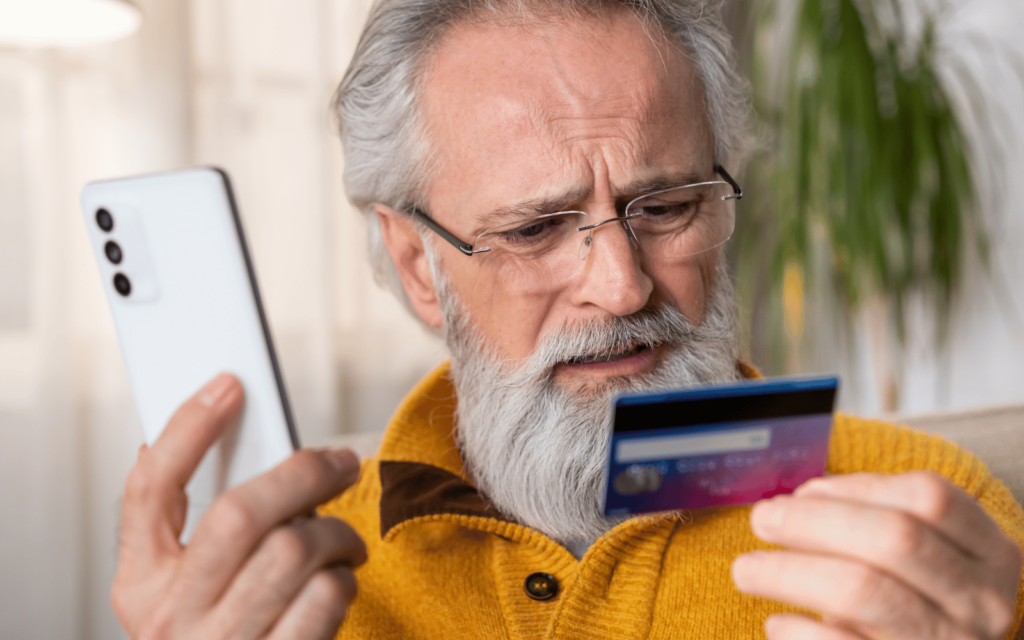We’ve all been there. The random junk collecting dust in the garage, or the phone you’re stuck with after upgrading can be a source of good money if you can find a buyer.
Online platforms like Facebook Marketplace and Gumtree have revolutionised the way we buy and sell secondhand goods. They’re convenient, easily accessible, and put you and potential buyers and sellers in the same ‘room’. Thing is, it could be a dodgy ordeal if you end up trusting the wrong person.
It is crucial to remain vigilant when navigating these online marketplaces to protect yourself from scammers who seek to exploit unsuspecting users. There are a few ways to do this.
Verify, verify, verify
We know, we sound just like Gmail’s 2FA notifications, but this one’s essential. Before initiating any transaction, take the time to verify the identity of the seller. Look for genuine profiles with complete information and a history of positive interactions.
Check if the seller has any reviews or ratings from previous buyers, as this can provide valuable insights into their credibility. Communicate with them through the platform’s messaging system to maintain a record of your conversation. Also, it’s good practice not to just go on the person’s ID document – this is a common tactic used by sellers to persuade you into selling to them. A copy of an ID document means little in South Africa.
Go with your gut
Trust your instincts and be cautious of any red flags. If an offer appears too good to be true or the seller’s behaviour seems suspicious, it’s best to exercise caution. Scammers often use tactics such as offering excessively low prices when selling things. It’s a good bet to compare similar products online to see if the asking price is unrealistically low.
Other tactics, like pressuring you for immediate payment or creating a false sense of urgency, should also be considered. Remember, it’s better to miss out on a deal than to become a victim of fraud.
Close to home
When buying or selling secondhand goods, always opt for in-person meetings in public, well-lit areas. Consider meeting at a local police station or busy mall. Bringing a friend along can also provide an added layer of security.
This goes hand-in-hand with ‘trust your gut’. If the person shies away from meeting in public, or your GPS preview seems to lead to an unsavoury area, best stay away. Use your heightened South African trouble tracker to know when you have to back out of a deal. Also, avoid meeting in secluded locations or allowing strangers into your home, as this can compromise your personal safety.
Cash-only business?
Cash payments are the most common form of payment for goods bought from online marketplaces. However, exercise caution when handling cash and be wary of counterfeit currency. Verify the authenticity of banknotes using security features and consider conducting the transaction at a bank or other secure location where the money can be verified.
Alternatively, consider using secure online payment methods such as immediate EFT or Cash Send. These methods offer some level of buyer protection and can help resolve disputes if the transaction goes awry. It’s advised that sellers don’t accept an EFT notification if the money doesn’t reflect in their account. It’s most likely not going to reflect, as South African scammers easily forge these notifications.
A PSA: Avoid sharing your financial information, such as credit card details, over unsecured platforms or with unverified sellers. This should be common knowledge, but we feel it necessary to mention. You know, just in case.
Don’t overshare
Protect your personal information by being cautious about the data you share online. Scammers may attempt to collect sensitive information such as your full name, address, or bank account details.
Just be sure to avoid sharing these details unless absolutely necessary, and be cautious of phishing attempts disguised as legitimate inquiries.
Be the whistleblower
If you encounter a suspicious seller or fall victim to a scam, report that person to the platform’s customer support immediately. By reporting fraudulent accounts or listings, you help create a safer online environment for other users.
Additionally, consider reporting the incident to your local police station, especially if you’re in possession of counterfeit Rands.
While online platforms like Facebook Marketplace and Gumtree offer tremendous opportunities for buying and selling secondhand goods. Stay safe, and be lekker, folks.
